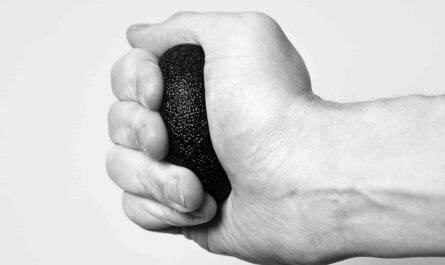In today’s fast-paced world, self-care has become more than just a buzzword—it is a necessity. Between juggling work responsibilities, maintaining relationships, and managing daily chores, it’s easy to feel overwhelmed and neglect your well-being. Creating a self-care routine tailored to your needs can be transformative, helping you find balance, joy, and relaxation in everyday life. But what does self-care really mean, and how can you develop a routine that genuinely supports your mental, emotional, and physical health? This article explores practical steps to create a self-care plan that works for you, offering guidance on integrating habits that nurture your whole self.

Understanding Self-Care: A Holistic Perspective
Self-care is often misunderstood as indulgence or selfishness, but in reality, it’s about maintaining your overall well-being. The World Health Organization defines self-care as “the ability of individuals, families, and communities to promote health, prevent disease, and maintain health without the aid of a healthcare provider.” This definition underscores the proactive and holistic nature of self-care. It’s not just about bubble baths and spa days (though they can be part of it); it’s about creating a sustainable lifestyle that nourishes your body, mind, and soul.
Self-care encompasses various dimensions:
- Physical Self-Care: Taking care of your body through exercise, nutrition, sleep, and medical check-ups.
- Emotional Self-Care: Managing stress, practicing self-compassion, and addressing emotional needs.
- Mental Self-Care: Stimulating your mind through learning, creativity, and mindfulness.
- Social Self-Care: Building and maintaining healthy relationships.
- Spiritual Self-Care: Connecting with your values, purpose, or higher power.
- Environmental Self-Care: Creating a space that feels safe, clean, and inspiring.
When you approach self-care holistically, you’re more likely to experience profound and lasting benefits.
Step 1: Assess Your Needs
The first step in creating a self-care routine is understanding your unique needs. Self-care is not one-size-fits-all; it’s highly personal. Begin by reflecting on your current lifestyle and identifying areas where you feel drained or unfulfilled. Consider the following questions:
- How do I feel physically, emotionally, and mentally on a typical day?
- What activities bring me joy and relaxation?
- Where am I overextending myself?
- What are my stress triggers?
Journaling can be a helpful tool to document your thoughts and uncover patterns. Once you’ve identified your needs, you can prioritize the aspects of self-care that will have the greatest impact on your well-being.
Step 2: Define Your Goals
Setting clear and realistic goals is essential for a successful self-care routine. Your goals might include:
- Improving physical health through regular exercise.
- Reducing stress with mindfulness practices.
- Enhancing relationships by spending quality time with loved ones.
- Boosting creativity by exploring hobbies or learning new skills.
Be specific and measurable with your goals. For instance, instead of saying, “I want to exercise more,” commit to “I will go for a 30-minute walk three times a week.” Specificity helps you stay focused and track your progress.
Step 3: Start Small and Build Gradually
One common mistake when starting a self-care routine is trying to overhaul your life overnight. This can lead to burnout and frustration. Instead, start small and build habits gradually. Focus on one or two areas of self-care at a time and integrate changes into your daily life.
For example:
- Begin with a simple morning routine, such as stretching for five minutes or drinking a glass of water upon waking.
- Dedicate 10 minutes before bed to journaling or reading a book.
- Schedule a weekly check-in with yourself to assess how you’re feeling and adjust your routine if needed.
Remember, consistency is more important than perfection. Small, consistent actions add up to meaningful changes over time.
Step 4: Create a Routine That Fits Your Lifestyle

Your self-care routine should complement your lifestyle, not compete with it. Consider your daily schedule, energy levels, and preferences when planning your routine. Here are some tips:
- Identify Your Peak Energy Times: Are you a morning person or a night owl? Schedule activities that require focus or energy during your peak times.
- Use Habit Stacking: Pair a new self-care habit with an existing routine. For instance, do deep breathing exercises while waiting for your coffee to brew.
- Set Boundaries: Protect your self-care time by saying no to unnecessary commitments or distractions.
- Be Flexible: Life is unpredictable, so be willing to adapt your routine when needed. Self-care shouldn’t feel like a chore.
Step 5: Explore Different Practices
Self-care looks different for everyone. Experiment with various activities to find what resonates with you. Here are some ideas for each dimension of self-care:
- Physical Self-Care:
- Exercise: Try yoga, dancing, or hiking.
- Nutrition: Cook a healthy meal or try a new recipe.
- Sleep: Create a bedtime routine to improve sleep quality.
- Body Care: Take a warm bath, moisturize your skin, or visit a spa.
- Emotional Self-Care:
- Journaling: Write about your feelings and experiences.
- Therapy: Talk to a professional about challenges you’re facing.
- Gratitude Practice: Reflect on things you’re grateful for each day.
- Mental Self-Care:
- Learning: Take an online course or read a book on a topic you love.
- Mindfulness: Practice meditation or deep breathing exercises.
- Creativity: Engage in painting, writing, or playing a musical instrument.
- Social Self-Care:
- Quality Time: Plan a coffee date with a friend or family member.
- Volunteering: Support a cause you care about.
- Communication: Set boundaries and express your needs in relationships.
- Spiritual Self-Care:
- Reflection: Spend time in nature or practice prayer.
- Purpose: Align your actions with your core values.
- Community: Join a spiritual or meditation group.
- Environmental Self-Care:
- Decluttering: Organize your living space to reduce stress.
- Comfort: Add elements to your home that bring joy, like plants or cozy blankets.
- Sustainability: Adopt eco-friendly habits, such as recycling or using reusable items.
Step 6: Overcome Common Barriers
Despite good intentions, many people struggle to maintain a self-care routine. Common barriers include:
- Lack of Time: Prioritize self-care by scheduling it into your calendar, even if it’s just 10 minutes a day.
- Guilt: Remind yourself that self-care is essential, not selfish. You can’t pour from an empty cup.
- Procrastination: Start with small, manageable steps and build momentum.
- Perfectionism: Accept that your routine doesn’t have to be flawless to be effective.
Step 7: Evaluate and Adjust Your Routine
A successful self-care routine is dynamic, evolving with your needs and circumstances. Regularly evaluate your routine to ensure it continues to serve you. Ask yourself:
- What’s working well?
- What’s not working or feels like a burden?
- Are there new activities I’d like to try?
Don’t hesitate to make changes. Self-care is a journey, not a destination.

The Ripple Effect of Self-Care
When you prioritize self-care, the benefits extend beyond your personal well-being. You’re better equipped to handle challenges, connect with others, and pursue your goals. A well-cared-for individual contributes to healthier relationships, more productive workplaces, and vibrant communities.
Conclusion: Empower Yourself Through Self-Care
Creating a self-care routine that works for you is a powerful act of self-love and empowerment. By assessing your needs, setting goals, and integrating meaningful practices into your life, you can find balance, joy, and relaxation. Remember, self-care is not a luxury—it’s a necessity for thriving in a demanding world. Start small, stay consistent, and celebrate your progress. Your well-being is worth the investment.



